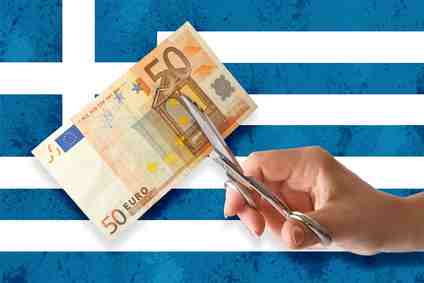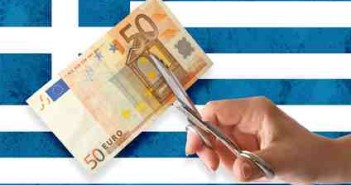The arrest of former managing director of the IMF Dominique Strauss-Kahn in New York may have changed the course of events regarding the Greek crisis. With Christine Lagarde as the head of the IMF, things are likely to be quite different for Greece. Here is the amazing timeline of events:
Greek situation deteriorates
- April 26: Greece missed its budget deficit reduction target for 2010. Not so surprising given previous misses and failures.
- April 30: EU begins preparing for Greek restructuring, as Merkel’s adviser says that this is unavoidable.
- May 2: Greece begins admitting it cannot pay – reality begins biting in Greece.
- May 6: EU/IMF delegation goes to Greece, to see if the country fulfilled its obligation, although the answer is clear: NO. Reaching budget balances is a condition for the next tranche of aid from the EU and the IMF.

IMF supports restructuring – IMF Head Arrested
- May 13: Europe split over Greek restructuring – Die Welt reports that the ECB and France oppose longer maturities. The EU, the Germany and the IMF support longer maturities. The ECB holds a lot of Greek debt. So do French banks. German banks currently hold less debt and the public in Germany is discontent about more bailouts. The IMF programs usually consist of debt default as part of their programs. DSK was about to push the IMF to supporting Greek restructuring.
- May 14: IMF managing director Dominique Strauss-Kahn is arrested in New York on allegations of a sex crime. He already boarded a plane to Paris, on his way to meet Angela Merkel and to meet EU finance ministers on the next day. Greece was high on the agenda. DSK is considered a friend of Greece and also a prominent candidate to run for the presidency in France against current president Sarkozi.
- May 17: The EU / IMF delegation in Greece is still taking its time although everybody knows the answer.
- May 19: Most French people think that DSK was set up. It’s important to note that in 1999, DSK was accused of corruption and was forced to quit his position as minister of finance. He was later acquitted of charges and returned to politics. On the same day, DSK resigns from the IMF.
Emerging Candidate Supports Restructuring and Pushed for Quick Appointment
- May 20-25: French finance minister Christine Lagarde emerges as the leading candidate and announces her candidacy for running the IMF on May 25th. Experts explain that while an IMF director from an emerging market is desired, the consequences that led to the resignation of DSK imply that a woman, with credentials, should lead the IMF. Mexico’s Agustin Carstens is also a candidate. Israel’s Stanley Fisher doesn’t propose himself, but is highly regarded as well. Lagarde definitely has the credentials. But she is definitely biased: Among all European finance ministers, Lagarde has “earned a reputation as the most uncompromising opponent of a Greek debt restructuring among euro zone ministers”.
- May 26: Eurogroup president Jean-Claude Juncker warns that IMF may not pay the next Greek loan tranche and that Europe will find it hard to fill in for the IMF regarding this payment to Greece.
- May 28: Inspectors find that Greece missed all targets – report – Indeed, Greece missed the target.
What’s next?
- June 29: The timing for the next installment of aid from the EU and IMF to Greece.
- June 30: The deadline for selecting a new managing director for the IMF.
Conclusion
So, Dominique Strauss-Kahn was about to lead the IMF to restructuring of Greek debt and later to run for the top position in France until two weeks ago.
DSK, which was already wrongly forced to quit in the past, is arrested just before things get too serious. He is now awaiting a trial and will unlikely challenge Sarkozi in France.
The leading candidate to replace DSK, Christine Lagarde, opposes Greek debt restructuring. It seems that Juncker is pushing to appoint Lagarde before June 29th, so that she will approve the share of the IMF in Greek aid.
Looks like a conspiracy theory, and DSK may be convicted of course. But the timeline of events is quite outstanding.
What do you think?
For more on the Euro, see the EUR/USD Forecast.
